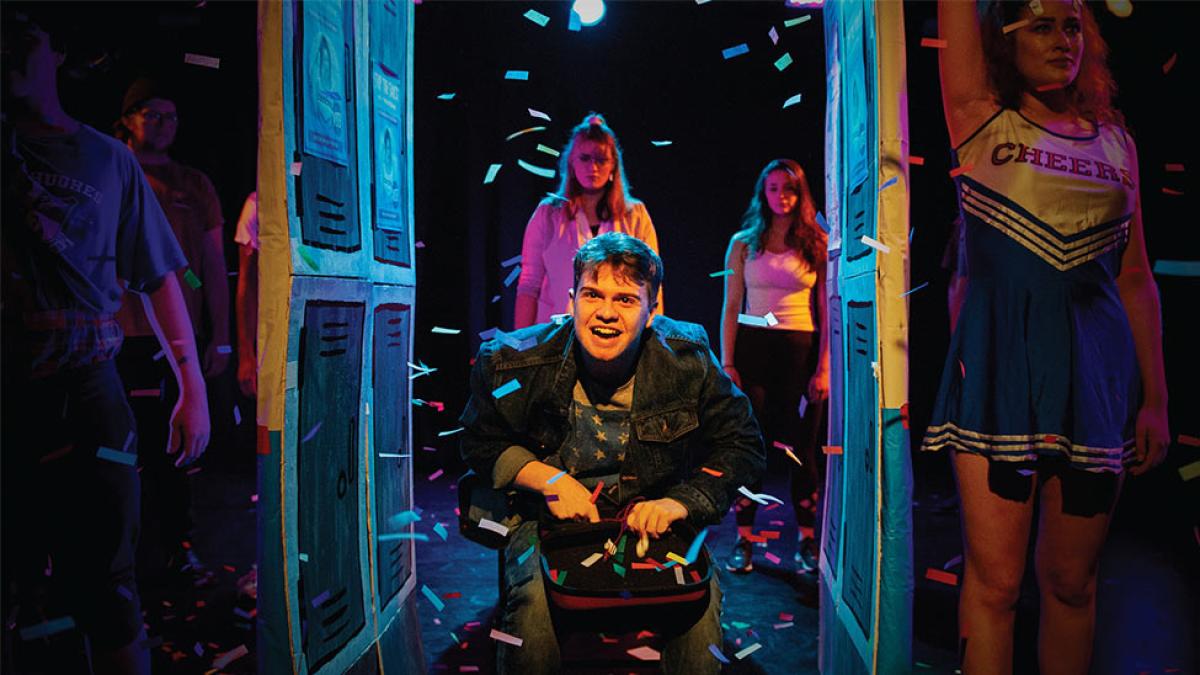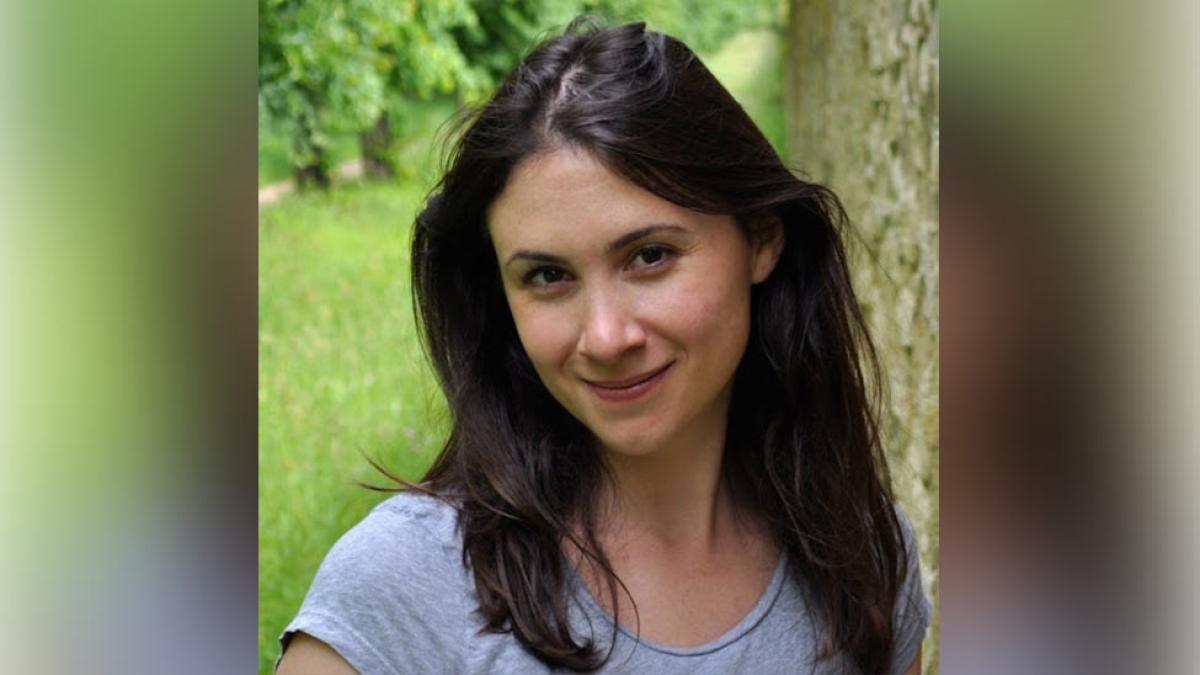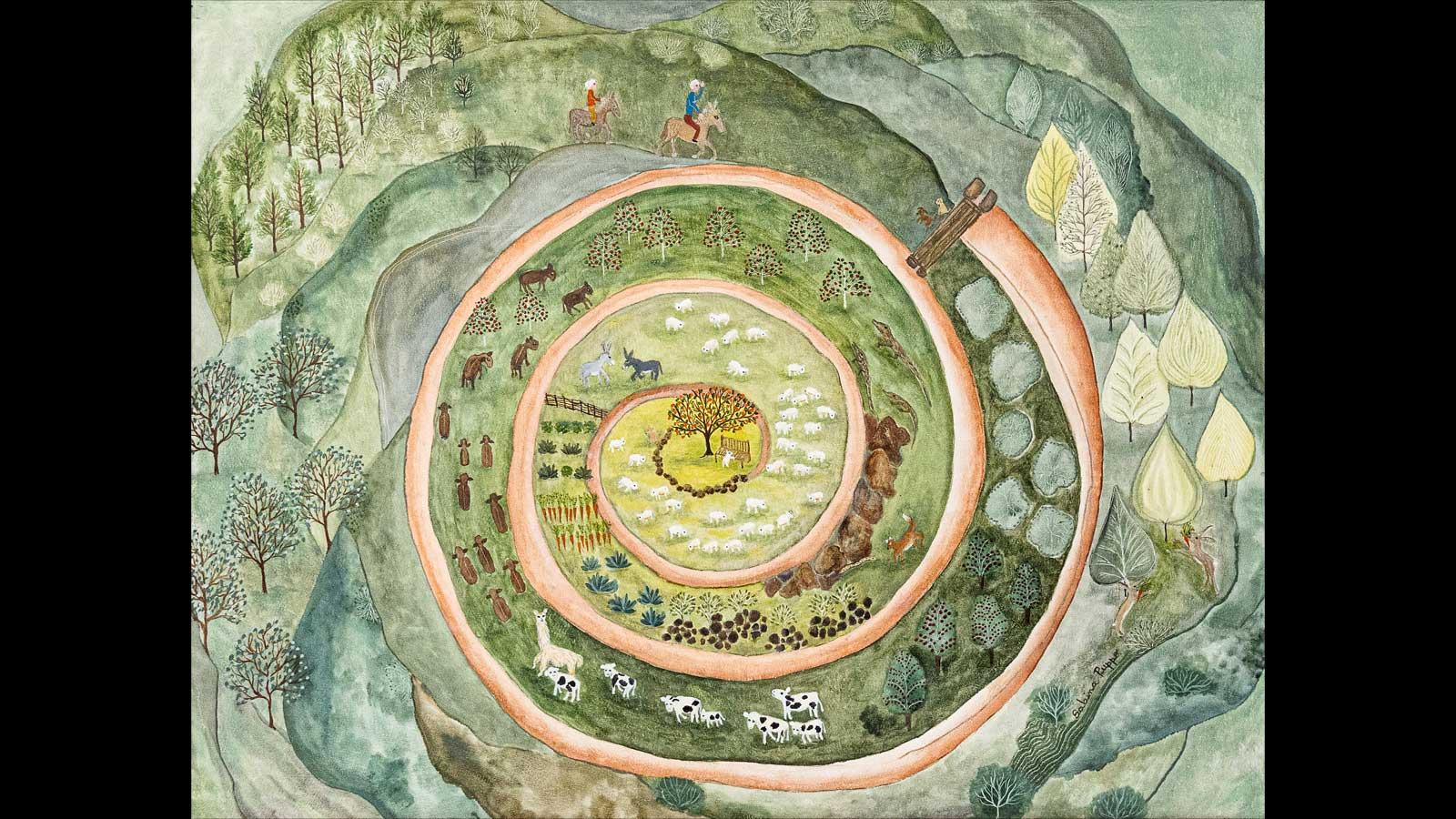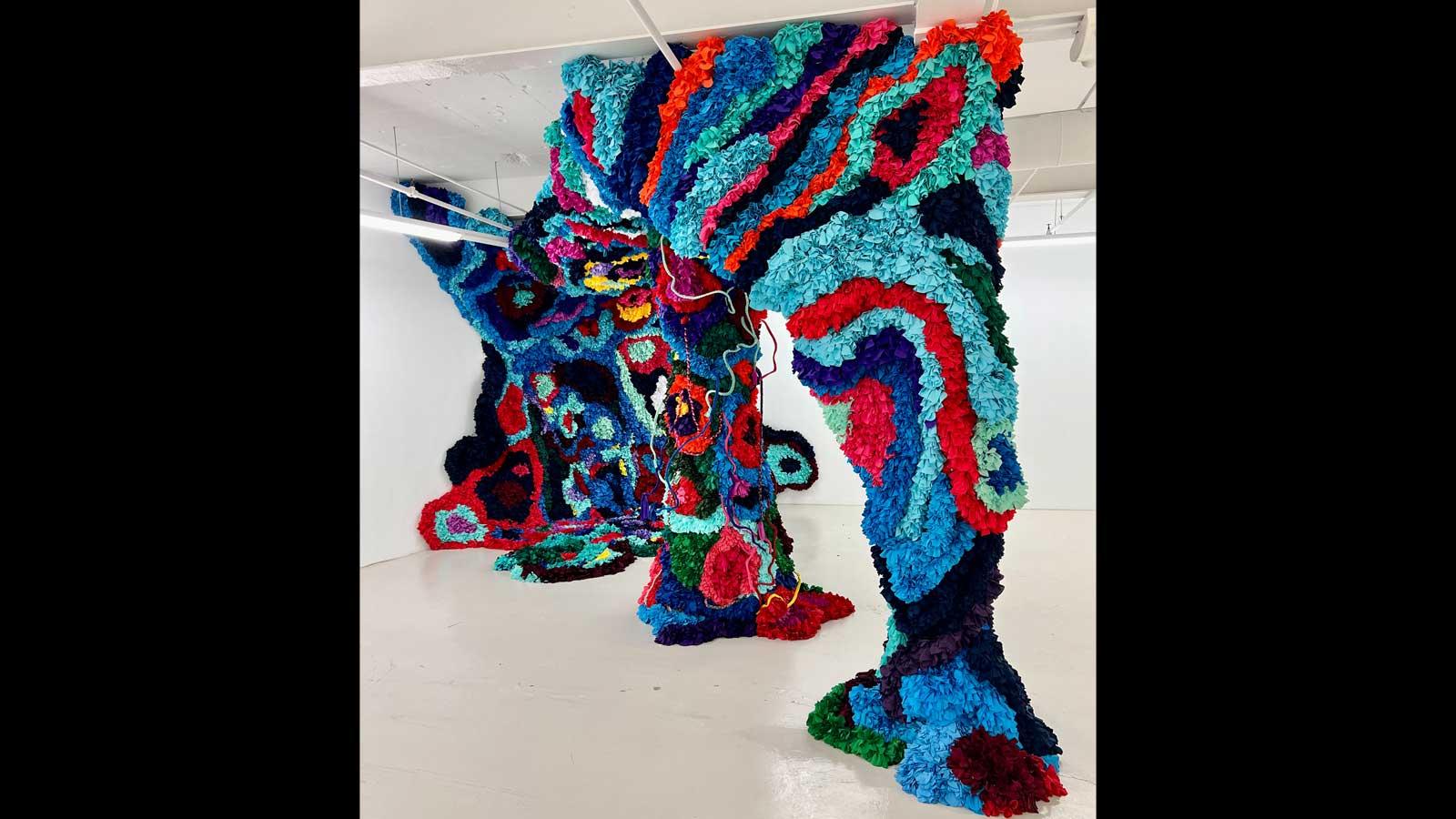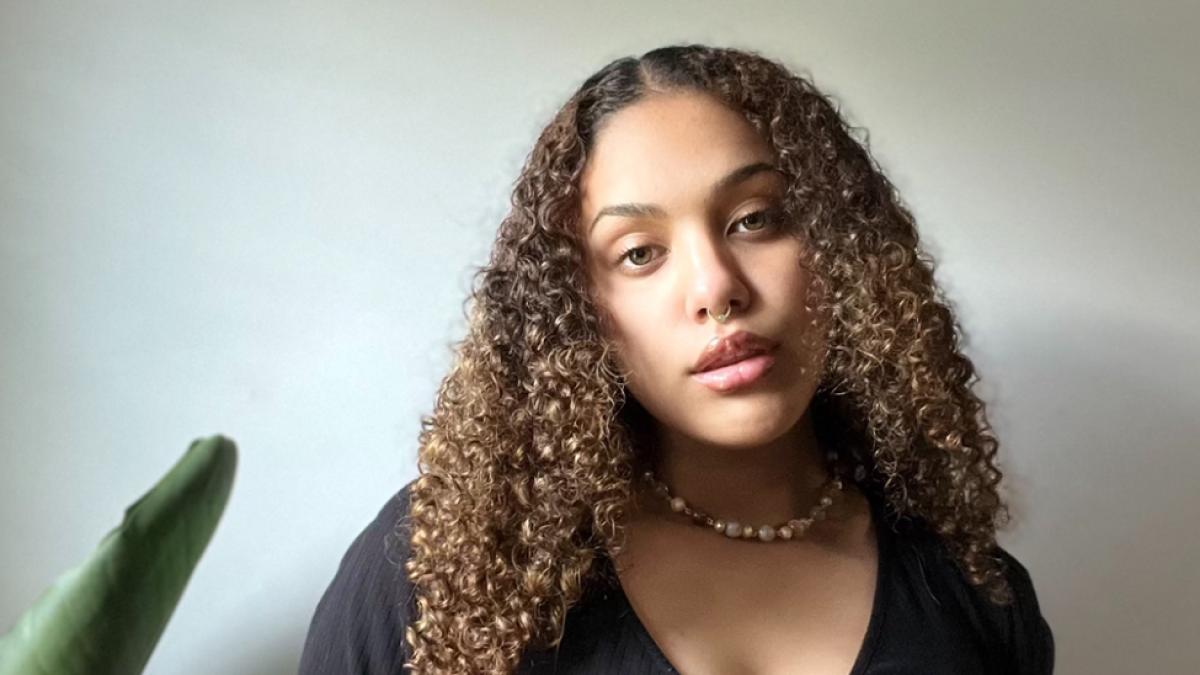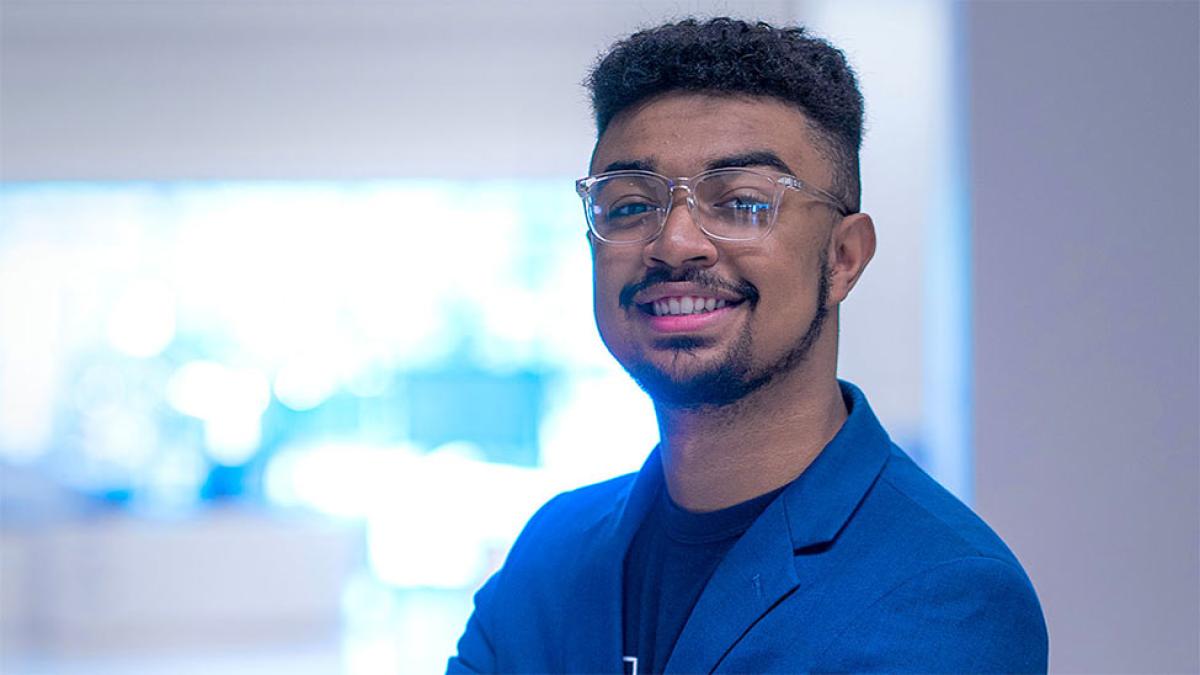"To be able to share the stage with my classmates and living in New York City is truly a blessing. Being taught by the best of the best is truly an honor," said Victoria Beaudion '23, BFA Commercial Dance.
Now Showing: PPA Mainstage Performances
The Fall 2022 semester kicks off with drama, comedy, and a bit of song and dance from Pace's School of Performing Arts. See what’s coming to the Pace mainstage this season.


The Fall 2022 semester kicks off with drama, comedy, and a bit of song and dance from Pace's School of Performing Arts. Here's what’s coming to the Pace mainstage this season:
The Chechens
by Phillip Christian Smith
Schaeberle Theater | October 4–9
Get tickets to The Chechens
In modern Chechnya homosexuals are rumored to be held in camps. Can one family protect their brother suspected of being gay, or will they honor kill him to protect the name of the family? What prevails in the end—religion, politics, or love?
She Loves Me
Book by Joe Masteroff | Music by Jerry Bock | Lyrics by Sheldon Harnick
Schimmel Center | October 12–15
Get tickets to She Loves Me
Set in a 1930s European perfumery, we meet shop clerks Amalia and Georg who, more often than not, don't see eye to eye. After both respond to a "lonely hearts advertisement" in the newspaper, they now live for the love letters that they exchange, but the identity of their admirers remains unknown. Join Amalia and Georg to discover the identity of their true loves... and all the twists and turns along the way!
Into the Woods
Book by James Lapine | Music and lyrics by Stephen Sondheim
80 Greenwich, Studio A | October 20–23
Get tickets to Into the Woods
The story follows a Baker and his wife, who wish to have a child; Cinderella, who wishes to attend the King's Festival; and Jack, who wishes his cow would give milk. When the Baker and his wife learn that they cannot have a child because of a Witch's curse, the two set off on a journey to break the curse. Everyone's wish is granted, but the consequences of their actions return to haunt them later with disastrous results.
IPE New Works
Directed by Julia Cavagna and Ana Cantoran Viramontes | Lighting Design by Rachel Fiorito and Sinjin Reinhard
80 Greenwich, Studio A | November 10–13
Get tickets to IPE New Works
Under the mentorship of established American and international theater professionals, PPA students devise original theatrical pieces through the exploration of design, writing, dramaturgy, and physical performance. The end result is unique experience that features performances of entirely new works.
Urinetown
Book by Greg Kotis | Music by Mark Hollmann | Lyrics by Mark Hollmann and Greg Kotis
Schimmel Center | November 16–20
Get tickets to Urinetown
In a Gotham-like city, a terrible water shortage caused by a 20-year drought has led to a government-enforced ban on private toilets. The citizens must use public amenities, regulated by a single malevolent company that profits by charging admission for one of humanity's most basic needs. Amid the people, a hero decides that he’s had enough and plans a revolution to lead them all to freedom! Inspired by the works of Bertolt Brecht and Kurt Weill, Urinetown is an irreverently humorous satire in which no one is safe from scrutiny. Praised for reinvigorating the very notion of what a musical could be, Urinetown catapults the "comedic romp" into the new millennium with its outrageous perspective, wickedly modern wit, and sustained ability to produce gales of unbridled laughter.
Dance sPace 2022
Directed by Rhonda Miller
Schimmel Center Performances | December 9–11
Get tickets to Dance sPace 2022
PPA’s commercial dance students let it all jazz, tap, and hip hop out for their annual showcase starting Friday, December 9. This annual showcase features a semester’s work of craft and dance.
More from Pace
A new cohort of leaders at Pace’s School of Performing Arts is embracing change and continuing to enable students’ professional success—all while guiding the way toward a more equitable arts community.
Pace University has named Jennifer M. Holmes, PhD, an internationally recognized leader in arts education, as its new executive director of the Pace School of Performing Arts (PPA).
Cheapest Car Insurance in New York
Lubin Associate Dean Randi Priluck offers tips on finding the cheapest car insurance for WalletHub.

Opinion: New York’s $250 million lawsuit against Donald Trump is the beginning, not end, of this case — a tax lawyer explains what’s at stake
Haub Law Professor Bridget J. Crawford in Market Watch explains what New York’s $250 million civil suit against Donald Trump means – and the interview gets picked up at newspapers across the country.
ESG Integration and Small Business
Lubin Professor Steve Mezzio explores the opportunities and challenges of integrating ESG policies for small businesses in The CPA Journal.

Pace University Art Gallery hosts New York Latin American Art Triennial exhibit, “Abya Yala: Structural Origins”
Pace University Art Gallery is pleased to co-present the 2022 New York Latin American Art Triennial (NYLAAT), a series of exhibitions and cultural programming at seven sites across New York City that launched earlier this month. The portion of the Triennial at Pace University Art Gallery opened with a public reception from 5:00 p.m.–7:00 p.m., remaining on view through October 29, 2022.

Works featured explore the connection between inherited ancestral practices and contemporary art
Pace University Art Gallery is pleased to co-present the 2022 New York Latin American Art Triennial (NYLAAT), a series of exhibitions and cultural programming at seven sites across New York City that launched earlier this month. The portion of the Triennial at Pace University Art Gallery opened with a public reception from 5:00 p.m.–7:00 p.m., remaining on view through October 29, 2022.
Titled, "Abya Yala: Structural Origins,” the 2022 NYLAAT examines the various processes and forms of creation inspired by traditional methodologies, materials and concepts which were implemented during the different stages of cultural and intellectual growth on the American continent. This project explores the inevitable repercussion that past generations had on the aesthetic, cultural or social values present in contemporary art in Latin America today. It also refers to the evolutionary processes in the arts which have influenced the different transformations that Latin American art has undergone. The 2022 NYLAAT seeks to establish the link between contemporary art on the continent and the premeditated use of materials, elements and forms of autochthonous expression of the first inhabitants of this region from the mats, baskets, goldsmith, pottery, textiles, altars, rituals, paintings closely related to tapestry, sculptures in clay, stone, metal, etc.
The 17 artists featured in the NYLAAT exhibition at Pace University Art Gallery include Allegra Pacheco (Costa Rica), Ana De Orbegoso (Perú), Armando Mariño (Cuba), Beradahil Marcelis "Bera Bauza” (Venezuela), José Castrellón (Panamá), José Chi Dzul (México), Karen Macher Nesta (Perú), Márcia Falcão (Brazil), Mariela Martin (Argentina), Mauricio Esquivel (El Salvador), Melissa Misla (US), Mildor Chevalier (Haití), Sabina Puppo (Uruguay), Sandra Monterroso (Guatemala), Santiago Jr. Ayala Cruz (Bolivia), Sharon Pérez (Bolivia), Soraya Abu Naba’a (Dominican Republic).
Exhibit dates/times (all free and open to the public)
On view: September 23–October 29, 2022
Artist/Curator Panel Discussion: Wednesday, October 12, 6:00 p.m.
Artist Talk by Melissa Misla: Thursday, October 27, 1:20 p.m.
* Please note that for COVID safety, proof of vaccination is required, face coverings are welcome, and no food or drink will be served.
About the New York Latin American Art Triennial
The New York Latin American Art Triennial is dedicated to organizing exhibitions and cultural programming through New York City to promote our Latin American culture. These exhibitions are intended to provide diverse educational programs that allow a place to engage with contemporary art expressions and investigate a deeper understanding of its role in society. We believe in the fundamental role of education and advocacy through art and in the preservation of the artistic and historic cultural legacies of the Latin American and Caribbean region. The New York Latin American Art Triennial seeks to galvanize the cultural landscape of the communities, complement the academic and visual arts programs of the galleries and institutions, and foster a wider appreciation of contemporary art and cultural understanding. Under the umbrella of the Bronx Hispanic Festival, additional Triennial exhibits and events are scheduled at BronxArtSpace, Boricua College (Bronx Campus), Governors Island at 405-B Colonels Row, Lehman College Art Gallery, Longwood Art Gallery at Hostos Community College, Pace University Art Gallery, Queens College Art Center, Teatro Latea at the Clemente Soto Velez Cultural and Educational Center.
About the Pace University Art Gallery
Founded with the conviction that art is integral to society, the Pace University Art Gallery is a creative laboratory and exhibition space that supports innovation and exploration for both artists and viewers. Open to students, staff, and faculty from across the Pace campuses and, equally, to the Lower Manhattan community and visitors from around the world, the Art Gallery encourages personal investigation and critical dialogue via thought-provoking contemporary art exhibits and public programming. Enhancing the Art Department's Bachelor of Arts and Bachelor of Fine Arts programs, the Art Gallery offers students real-world opportunities to exhibit their own art and to work directly with professional artists to install and promote exhibitions.
About Dyson College of Arts and Sciences
Pace University’s liberal arts college, Dyson College, offers more than 50 programs, spanning the arts and humanities, natural sciences, social sciences, and pre-professional programs (including pre-medicine, pre-veterinary, and pre-law), as well as many courses that fulfill core curriculum requirements. The College offers access to numerous opportunities for internships, cooperative education and other hands-on learning experiences that complement in-class learning in preparing graduates for career and graduate/professional education choices.
About Pace University
Pace University has a proud history of preparing its diverse student body for a lifetime of professional success as a result of its unique programs that combine immersive academics and real-world experiences. Pace is ranked the #1 private, four-year college in the nation for upward economic mobility by Harvard University’s Opportunity Insights, evidence of the transformative education the University provides.
Q&A with Victoria Beaudion '23
"To be able to share the stage with my classmates and living in New York City is truly a blessing. Being taught by the best of the best is truly an honor," said Victoria Beaudion '23, BFA Commercial Dance.


How did you become interested in pursuing a major in Commercial Dance?
I have always had a love for entertainment and felt as though commercial dance was a great avenue for me because it encompassed dance in both film and stage.
Why did you choose to attend Pace?
In my senior year of high school, I attended the Pace Dance Intensive that the Commercial Dance program offers in the fall. I had the opportunity to audition for the program at the intensive and the next evening attended a show put on by the Commercial Dance students. The show was unbelievable—the pure excellence and execution of movement blew me away! It set the bar high, and I knew that night it was something I wanted to be a part of.
What have your experiences been like with the Pace School of Performing Arts? Have certain faculty members been instrumental in your academic journey?
I reflect on so many memories in the last three years of school and I am overwhelmed with emotion. To be able to share the stage with my classmates and living in New York City is truly a blessing. Being taught by the best of the best is truly an honor. I know my freshman self would be so proud of me today. This program has changed how I look at myself, for the better. Though all of the faculty members have had a significant part in my collegiate career thus far, I would like to give recognition to Scott Jovovich. His long-lasting career and strong-minded work ethic is something that I truly admire. He gives his all to his students and I have found tremendous growth within myself under his wing.
To be able to share the stage with my classmates and living in New York City is truly a blessing. Being taught by the best of the best is truly an honor.
What activities related to your course of study have you participated in as a student?
I have been involved in main stage productions of both DANCESPACE [offered in the fall] and Dance Out Loud [offered in the spring] as well as the student choreography show, Emergence.
Are there any challenges you have overcome that you are proud of and would like to share?
Though I have learned many lessons and conquered many challenges throughout my time at Pace, singing was always a fear of mine. I promised myself before college that I would walk into every room with open arms and an open mind. Although I was terrified, I took vocal classes and walked in every day with a willingness to learn and that is something that I am proud of.
What would you like to do upon graduation/what are your career goals?
After graduation, I would like to move to Los Angeles to begin my professional dance career. After my outstanding semester with Pace in LA, I found a love for dance on film and television. One of my many goals is to dance alongside a musical artist and travel on a world tour.
What advice, if any, would you like to give to our current students?
Allow yourself grace and trust the process. Learning the academic and performance side of commercial dance is tedious and the fact that our faculty has figured out a way to convey all of the information learned in just four years is astounding. Being a senior, I can confidently look back on my years at Pace and say that I am proud of my work and honored to be a part of a program of this caliber.
More Student Stories
Madelyn Aryanna Garcia '23, Environmental Science, has found a natural fit at Pace.
“I feel a really strong responsibility to educate people about silenced Black voices in early American Theater, and then make physical, actual change,” says Kailey Liddell, an English Language and Literature major.
Jeremiah Williams '23 found his place on campus within the political science department. He cites courses taught by President Krislov and Matthew Bolton as influential in his journey to understanding the political world.
Pace law school honors Brazilian environmentalist
The Elisabeth Haub School of Law at Pace University has announced that the 2022 Elisabeth Haub Award for Environmental Law and Diplomacy will be given to Paulo de Bessa Antunes, a professor of environmental law at Universidade Federal do Estado do Rio de Janeiro, and head of the Environmental Practice of Campos Mello Advogados (Brazil). Bessa is being recognized for his tireless advocacy in support of laws protecting the environment in Brazil, including filing several successful lawsuits over the three decades he worked in the Federal Public Prosecution Service.
3 Hudson Valley properties named in civil suit against ex-President Trump
"This is an example of somebody thinking above the law and they can get away with anything they want to because of who they are and the status that they hold in society," says Bennett Gershman, law professor at Pace University.
Students are Ready To Move On—Here’s How We Can Help Them
As I talk to students around our campuses—on new student move-in days, as part of undergraduate convocations, even in the law school seminar I’m teaching this semester—what I hear consistently is that students are ready to move on.
Renowned Land Use Law Scholar and Dean of Samford University’s Cumberland School of Law, Blake Hudson, Completes Residency as Haub Visiting Scholar
The Elisabeth Haub School of Law at Pace University is pleased to announce that Blake Hudson, Dean of Samford University’s Cumberland School of Law, recently completed a residency at the Law School as a Haub Visiting Scholar. In their roles at Haub Law, Visiting Scholars collaborate with faculty, guest lecture classes, and work closely with students in Haub Law's Environmental Law Program and others. As previously announced, funding for the Haub Visiting Scholars was made possible by a generous gift from the Haub family in recognition of the essential role of environmental science, informatics and other technology and allied fields towards formulating environmental policy and law.


The Elisabeth Haub School of Law at Pace University is pleased to announce that Blake Hudson, Dean of Samford University’s Cumberland School of Law, recently completed a residency at the Law School as a Haub Visiting Scholar. In their roles at Haub Law, Visiting Scholars collaborate with faculty, guest lecture classes, and work closely with students in Haub Law's Environmental Law Program and others. As previously announced, funding for the Haub Visiting Scholars was made possible by a generous gift from the Haub family in recognition of the essential role of environmental science, informatics and other technology and allied fields towards formulating environmental policy and law.
“The Elisabeth Haub School of Law is home to the #1 ranked environmental law program in the United States,” said Gilbert and Sarah Kerlin Distinguished Professor of Environmental Law and Associate Dean of Environmental Law Programs and Strategic Initiatives Jason Czarnezki. “Collaboration with top academics, like Dean Blake Hudson, allows our school to remain at the forefront of developments in environmental law and policy and our students to continue to learn from scholars at the top of their fields. It was an honor to welcome Blake to our law school and continue to enhance our environmental law program.”
During his time at Haub Law, Dean Blake Hudson was a guest lecturer in a variety of environmental law courses, including Climate Change Law, Natural Resources Law, Land Use Law, and Environmental Skills. Further, Dean Hudson conducted a faculty workshop where he presented his paper, “The Righteous Divide in American Policymaking,” which will be published later this year. A renowned land use scholar, he was also able to spend time meeting with Haub Law’s Land Use Law Center staff and students. Throughout his time at Haub Law, Dean Hudson brought his own research and experience to the role of the Haub Visiting Scholar.
Blake Hudson is the Dean of Samford University’s Cumberland School of Law. Previously he served as the Samuel T. Dell Professor of Law and Director of the Environmental Land Use and Real Estate Law Program at the University of Florida’s Levin College of Law. Prior to joining UF Law, Hudson held faculty roles at Stetson University College of Law, the Louisiana State University (LSU) Law Center and LSU’s College of the Coast & Environment, and the Houston Law Center. Before entering academia, he practiced at the law firm of Baker Botts in Houston. As a professor, Dean Hudson teaches courses related to property, environmental and natural resources law. His research focuses on the intersection of land use law, policy, and planning with natural resource management, as well as the complex role of private property rights and government institutions as solutions to common dilemmas.
